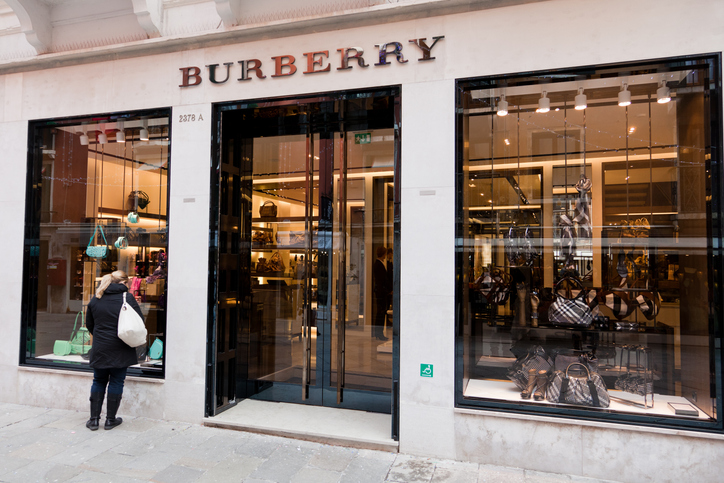ii view: Burberry shares remain unfashionable
Shares in this iconic brand have fallen by over a third in 2020 and remain weak.
20th July 2020 15:22
by Keith Bowman from interactive investor
Shares in this iconic brand have fallen by over a third in 2020 and remain weak.

First-quarter trading update to 27 June
- Comparable quarterly sales down 45%
- Asia Pacific sales down 10% - Americas down 70% - EMEIA down around 75%
- June sales down 20%
Guidance:
- Offering no full-year 2021 financial estimates
- Expect second quarter (to end September 2020) to be down between 15% and 20%
- Expect first half gross margin to decline by around 2% to 3% year-over-year
Chief executive Marco Gobbetti said:
"In Q1, sales were severely impacted by the drop in luxury demand from Covid-19 and we expect it will take time to return to pre-crisis levels with the resumption of overseas travel. We are encouraged by the improving trends in all regions and the promising exit rate for June. We saw an excellent response to new product launches in recovering economies as well as online. Demand for leather goods was particularly strong in Mainland China and Korea, bringing new, younger luxury customers to the brand.
“As we enter the second phase of our strategy, we are sharpening our focus on product and making other organisational changes to increase our agility and generate structural savings that we will be able to reinvest into consumer-facing activities to further strengthen our luxury positioning ."
ii round-up:
Founded in 1856 by Thomas Burberry, today Burberry has become a global luxury brand with annual sales of over £2.6 billion.
Its retail outlets at the end of June 2020 numbered 215 stores, 148 concessions, 54 outlets and 45 franchise stores. The group also operates wholesale and licencing businesses.
In order to revitalise its iconic brand, Burberry previously commenced a multi-year transformation plan.
For a round-up of this first-quarter trading update, please click here.
ii view:
Burberry offers investors the chance to buy into an iconic luxury British brand. Before battling the coronavirus, it had initiated a multi-year transformation plan, which is currently in its third year. A drive towards digitalisation is underway, its stores are being revamped and, for the most part, it is exiting its non-luxury lines. It is also placing a greater emphasis on leather and accessories, areas it believes to be more resilient and fastest growing segments of the luxury market.
Accessories currently account for 36.7% of its retail and wholesale sales, followed by Women’s at 30.8%, Men’s at 27.6% and Children, Beauty and Other at just under 5%. Consumer response to its new collections was summarised by management as “very positive” prior to Covid-19. But the pandemic has hit it hard.
For investors, the loss of the dividend, although arguably sensible, is a blow. But some positive signs under its transformation plan are emerging, while costs continue to be cut. Its early hit from the pandemic given its Asian exposure could also see it benefiting from early recovery. A 20% sales fall in June was better than April and May. That said, with China, Hong Kong and US tensions now back in focus and pandemic uncertainty still high, investors may still wish to wait for solid evidence of recovery before committing new monies.
Positives:
- Transformation plan
- Pursuing a cost saving programme
Negatives:
- Coronavirus uncertainty
- Asia Pacific accounts for around 40% of sales
The average rating of stock market analysts:
Weak hold
These articles are provided for information purposes only. Occasionally, an opinion about whether to buy or sell a specific investment may be provided by third parties. The content is not intended to be a personal recommendation to buy or sell any financial instrument or product, or to adopt any investment strategy as it is not provided based on an assessment of your investing knowledge and experience, your financial situation or your investment objectives. The value of your investments, and the income derived from them, may go down as well as up. You may not get back all the money that you invest. The investments referred to in this article may not be suitable for all investors, and if in doubt, an investor should seek advice from a qualified investment adviser.
Full performance can be found on the company or index summary page on the interactive investor website. Simply click on the company's or index name highlighted in the article.